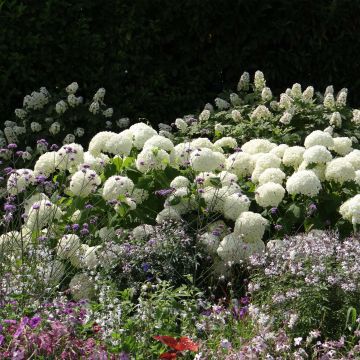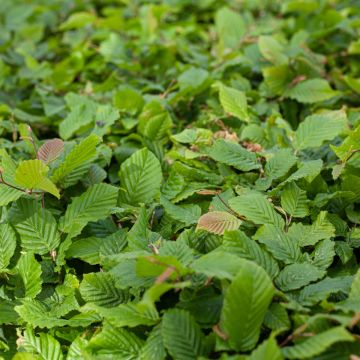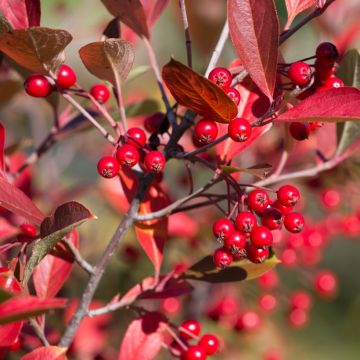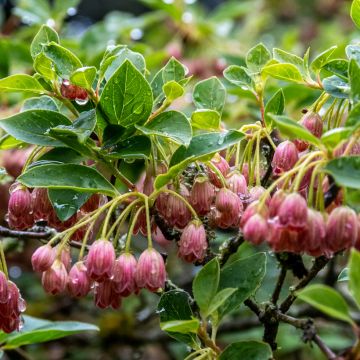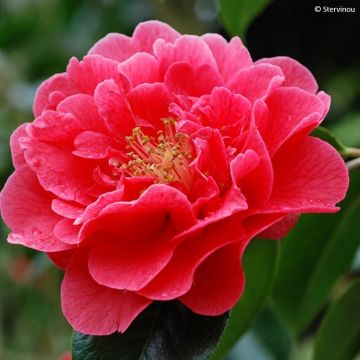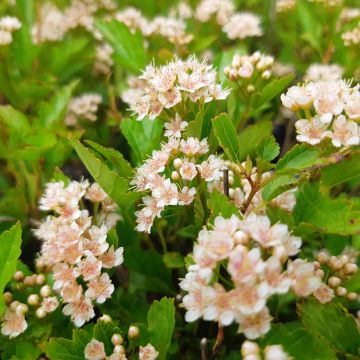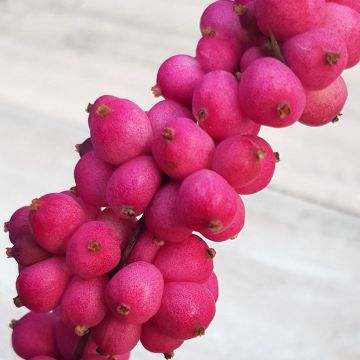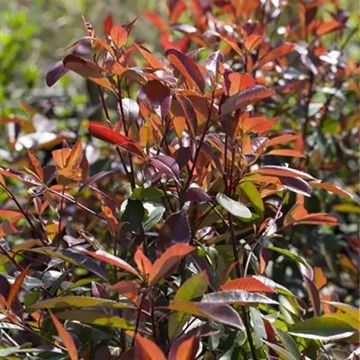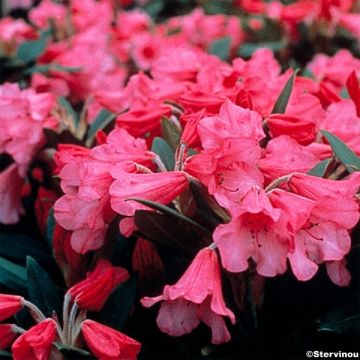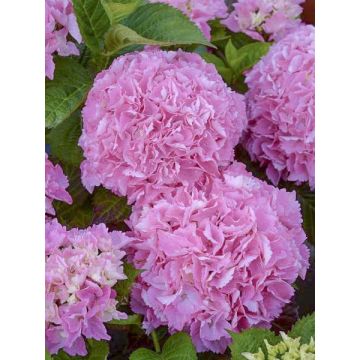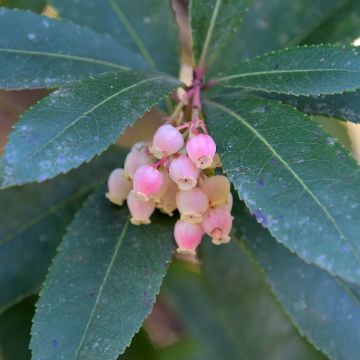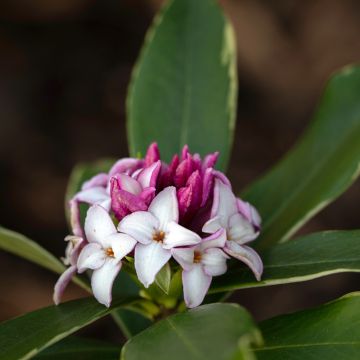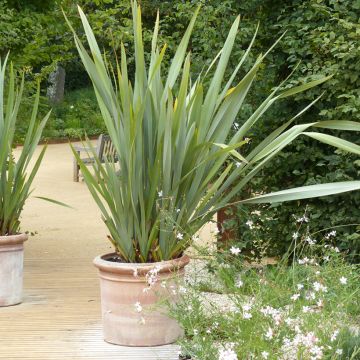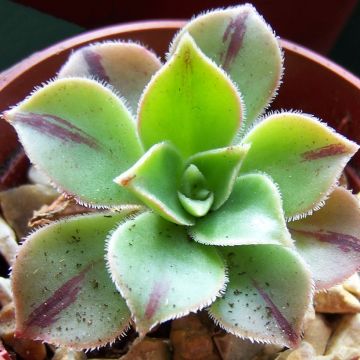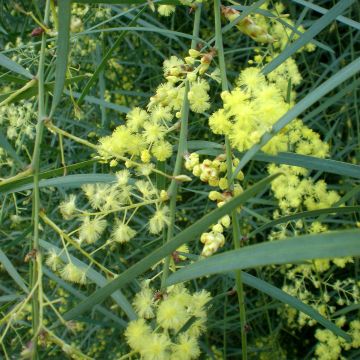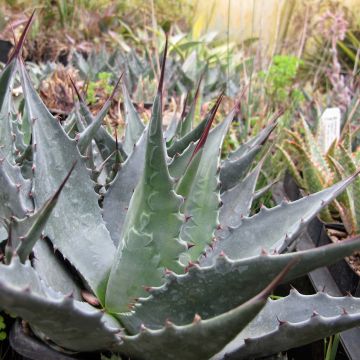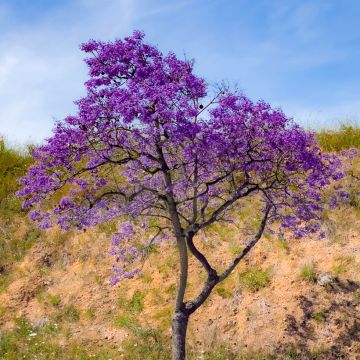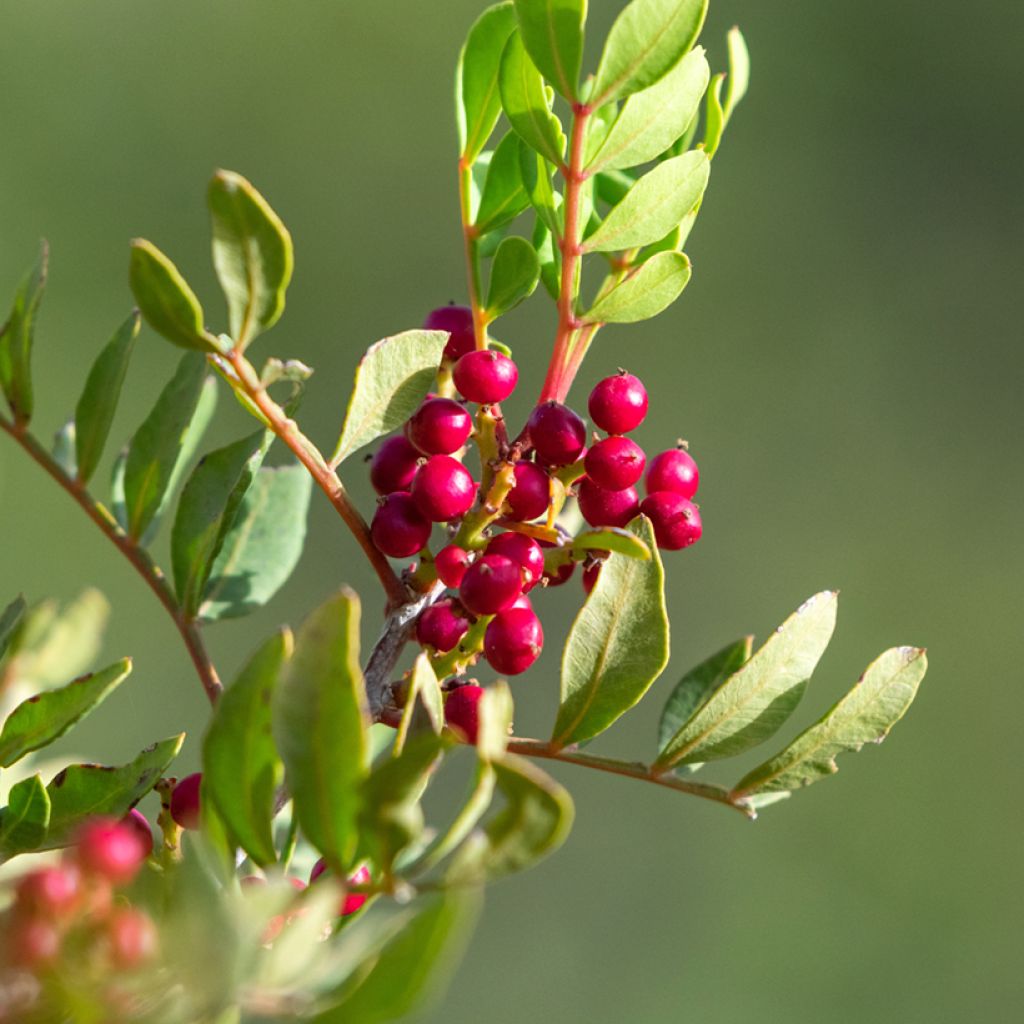

Pistacia lentiscus - Mastic Tree
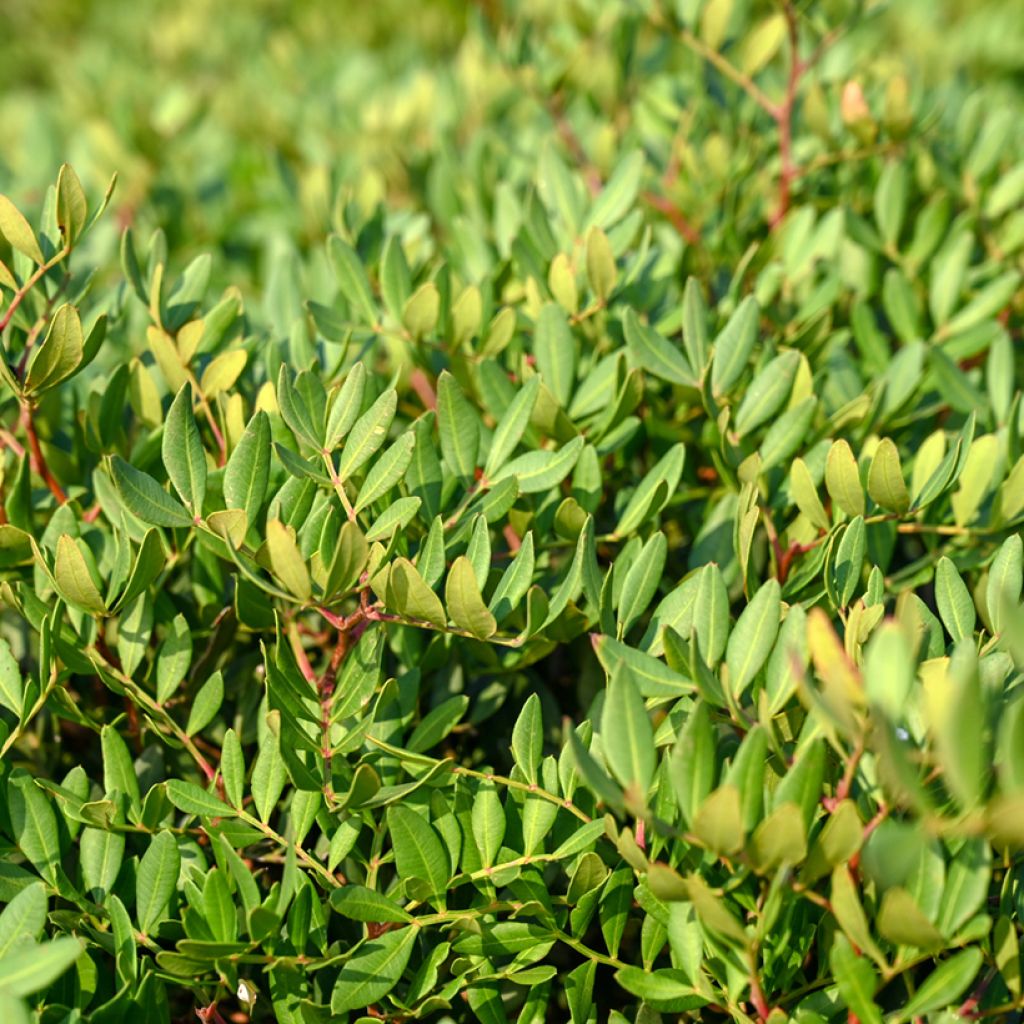

Pistacia lentiscus - Mastic Tree
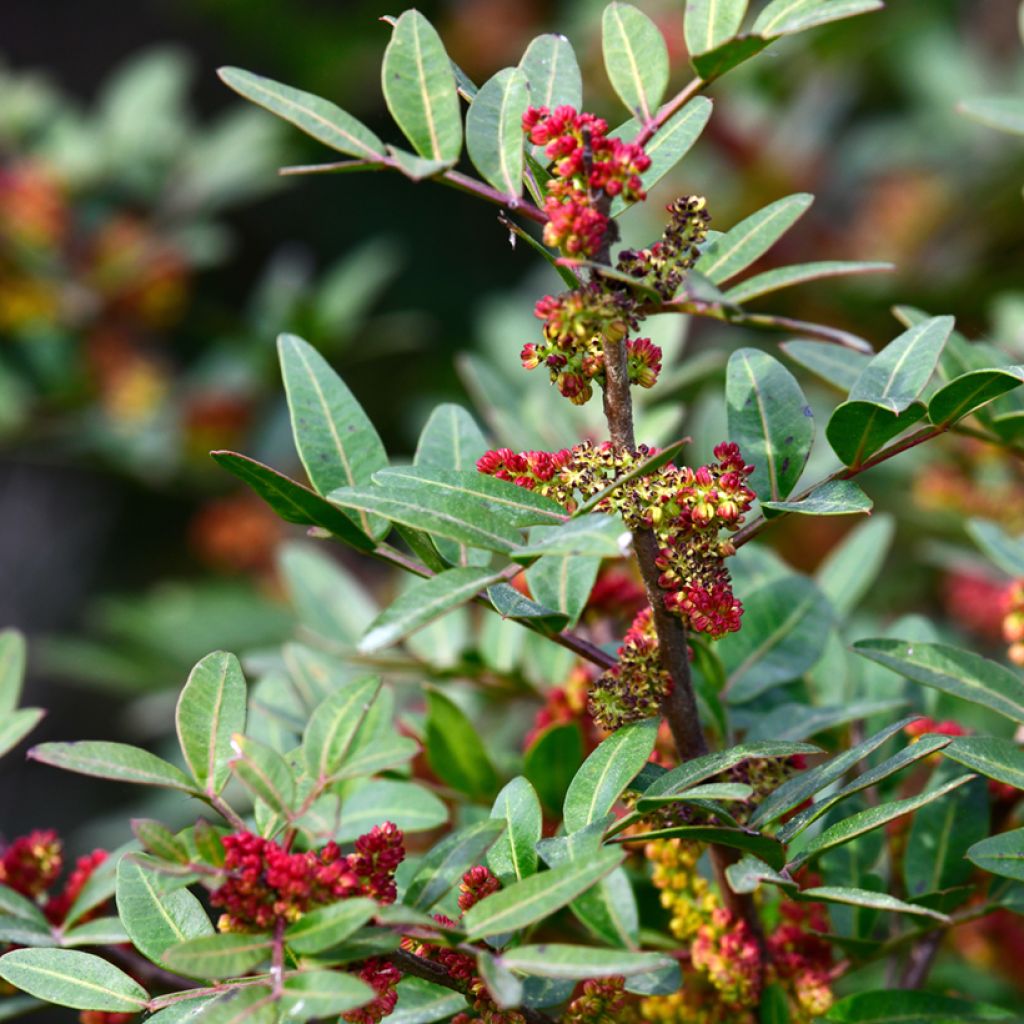

Pistacia lentiscus - Mastic Tree
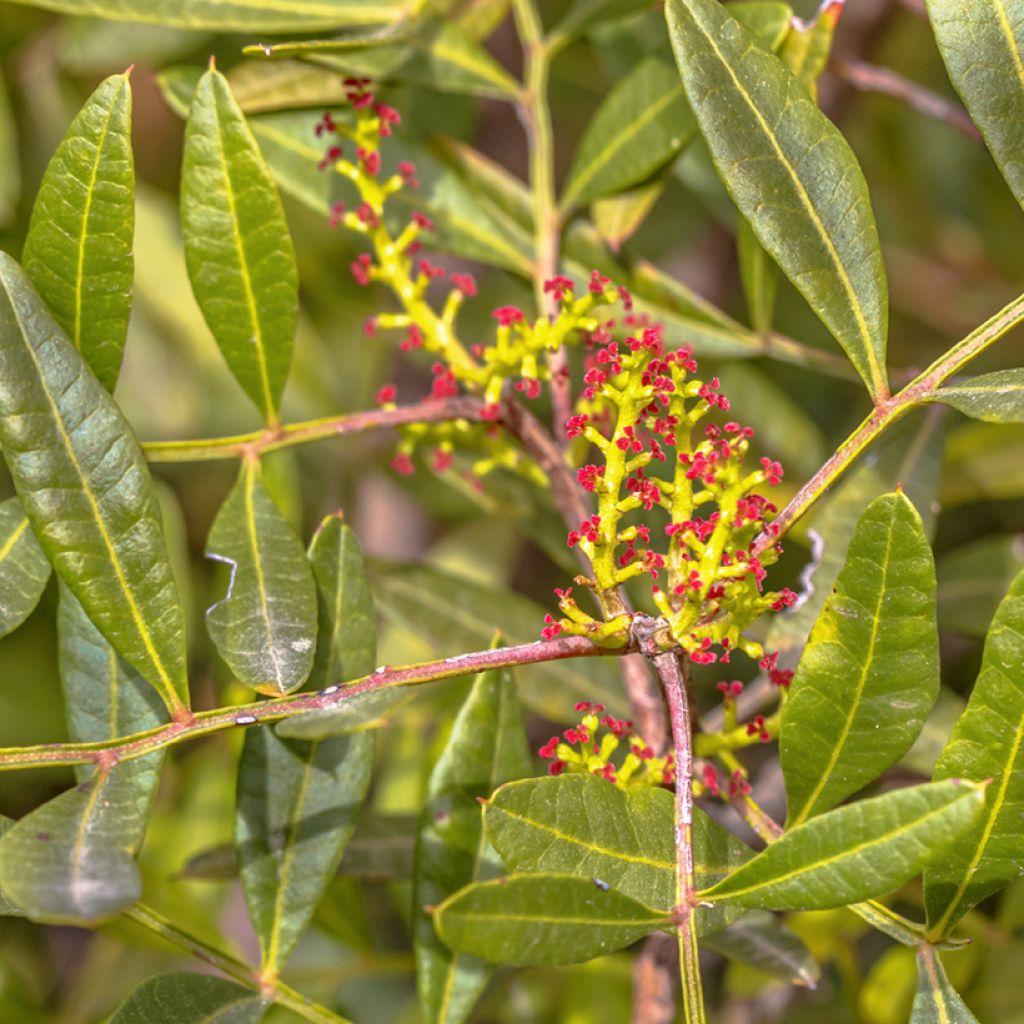

Pistacia lentiscus - Mastic Tree
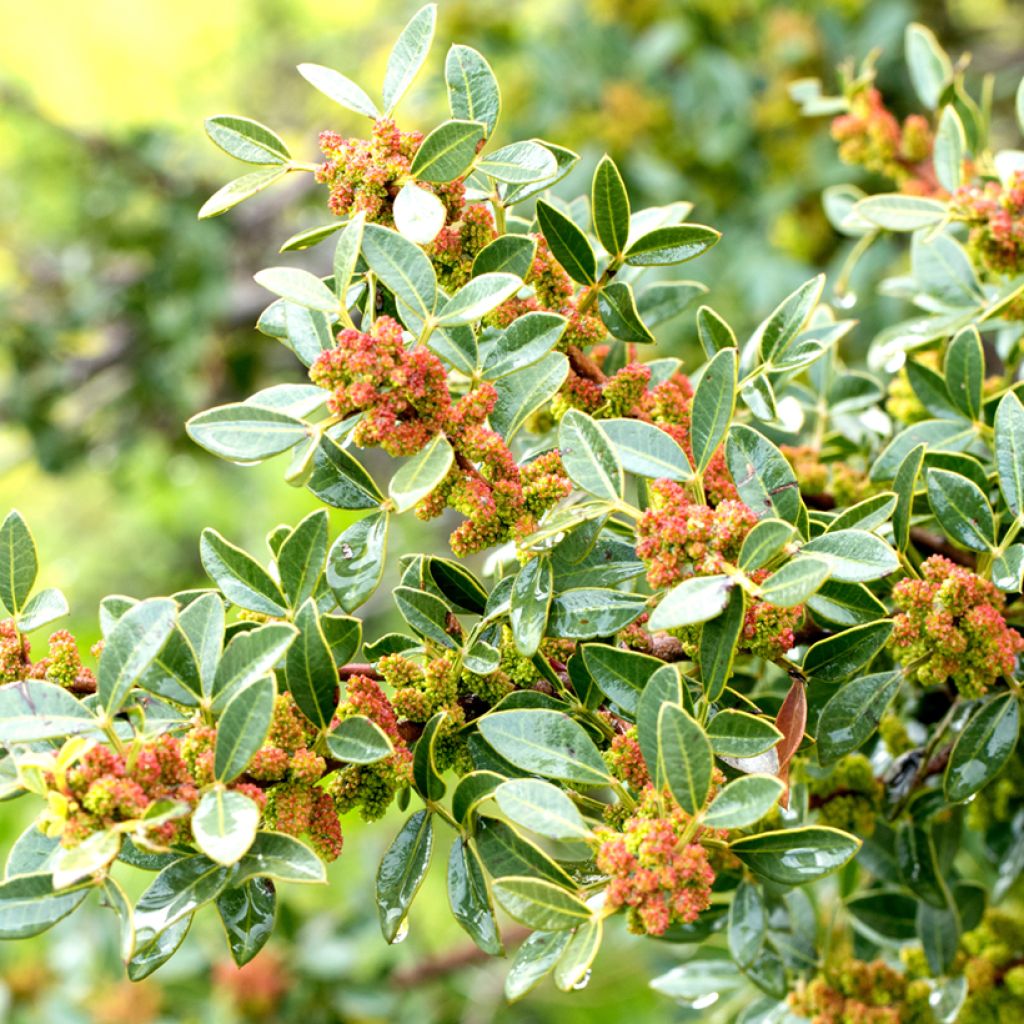

Pistacia lentiscus - Mastic Tree
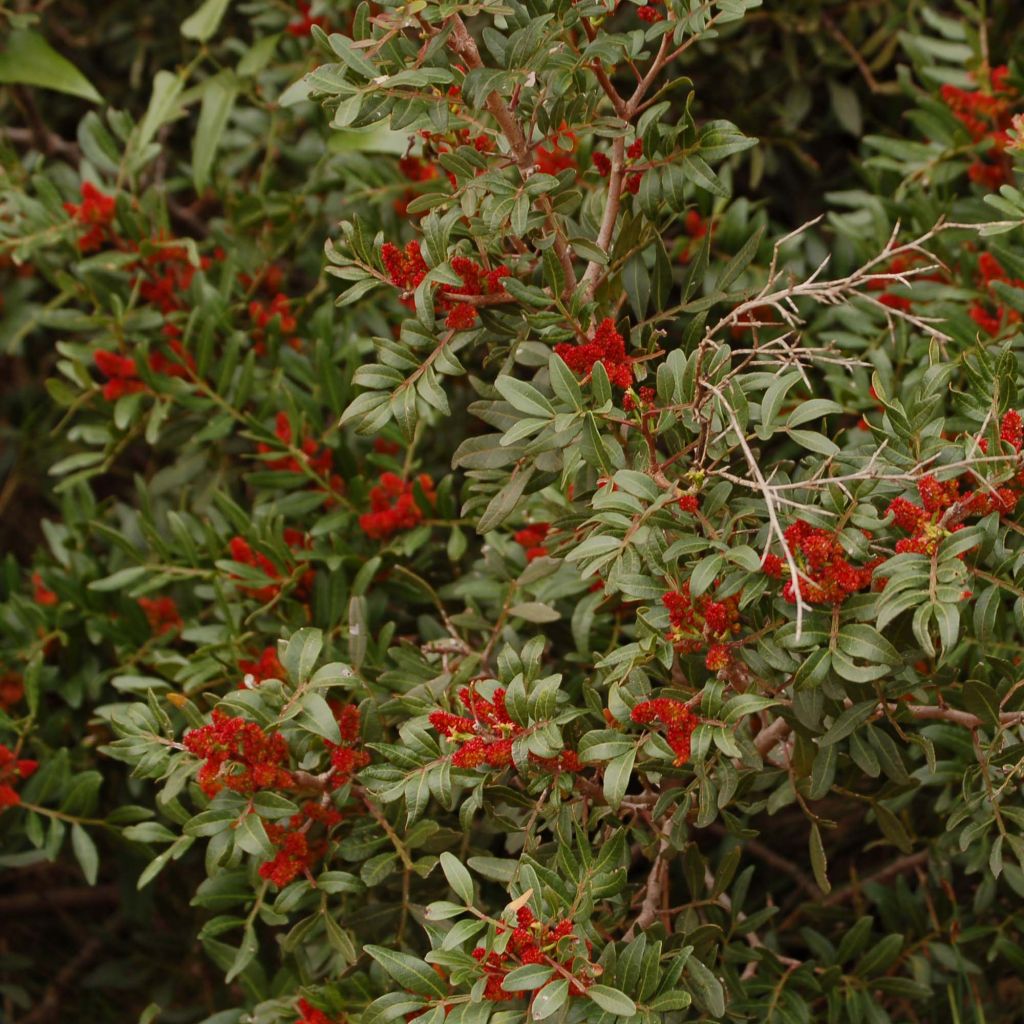

Pistacia lentiscus - Mastic Tree
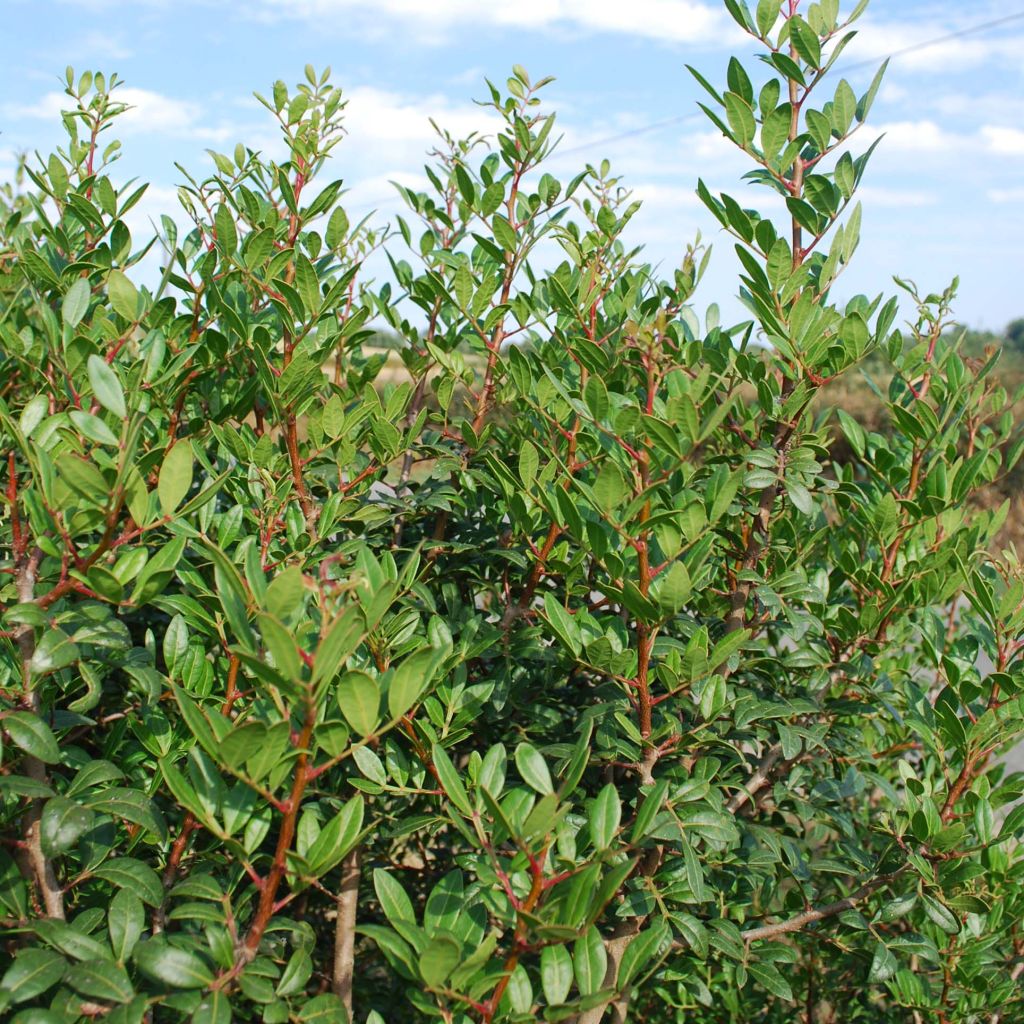

Pistacia lentiscus - Mastic Tree
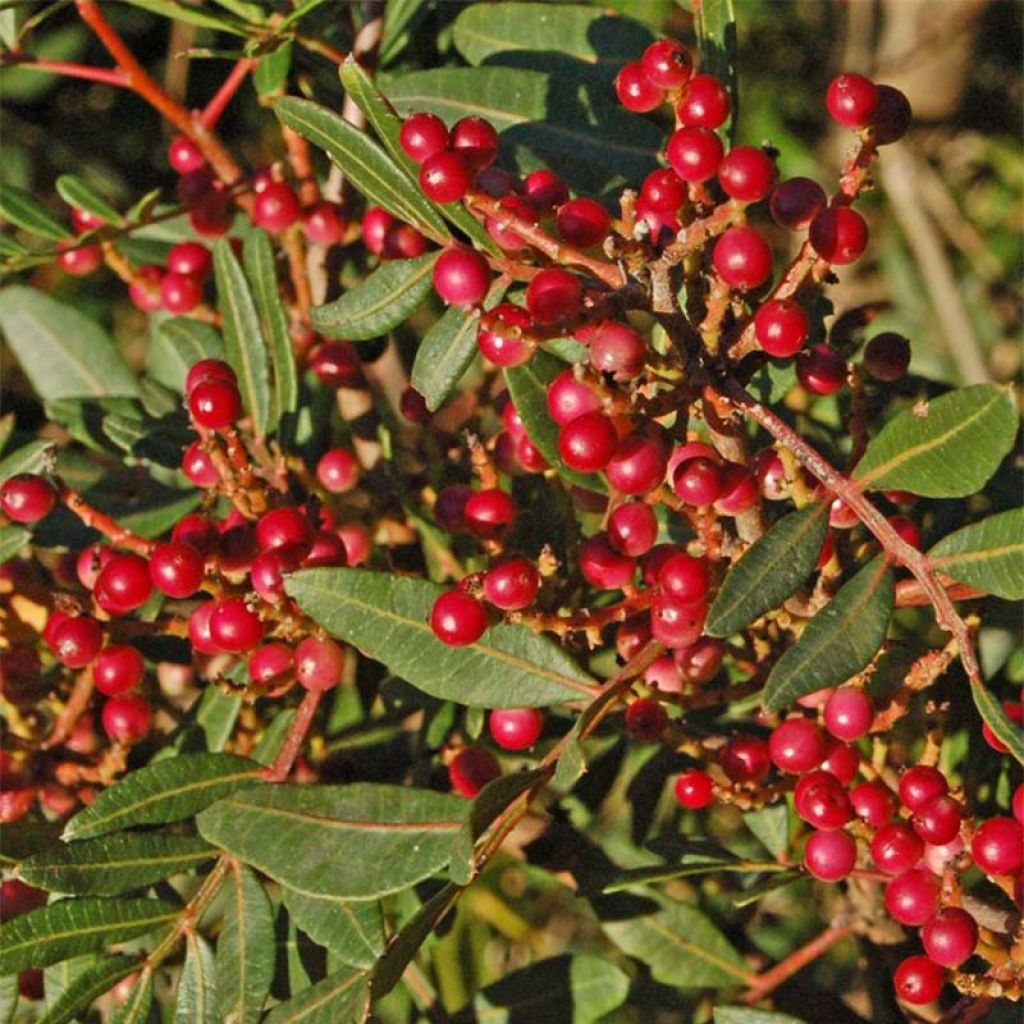

Pistacia lentiscus - Mastic Tree
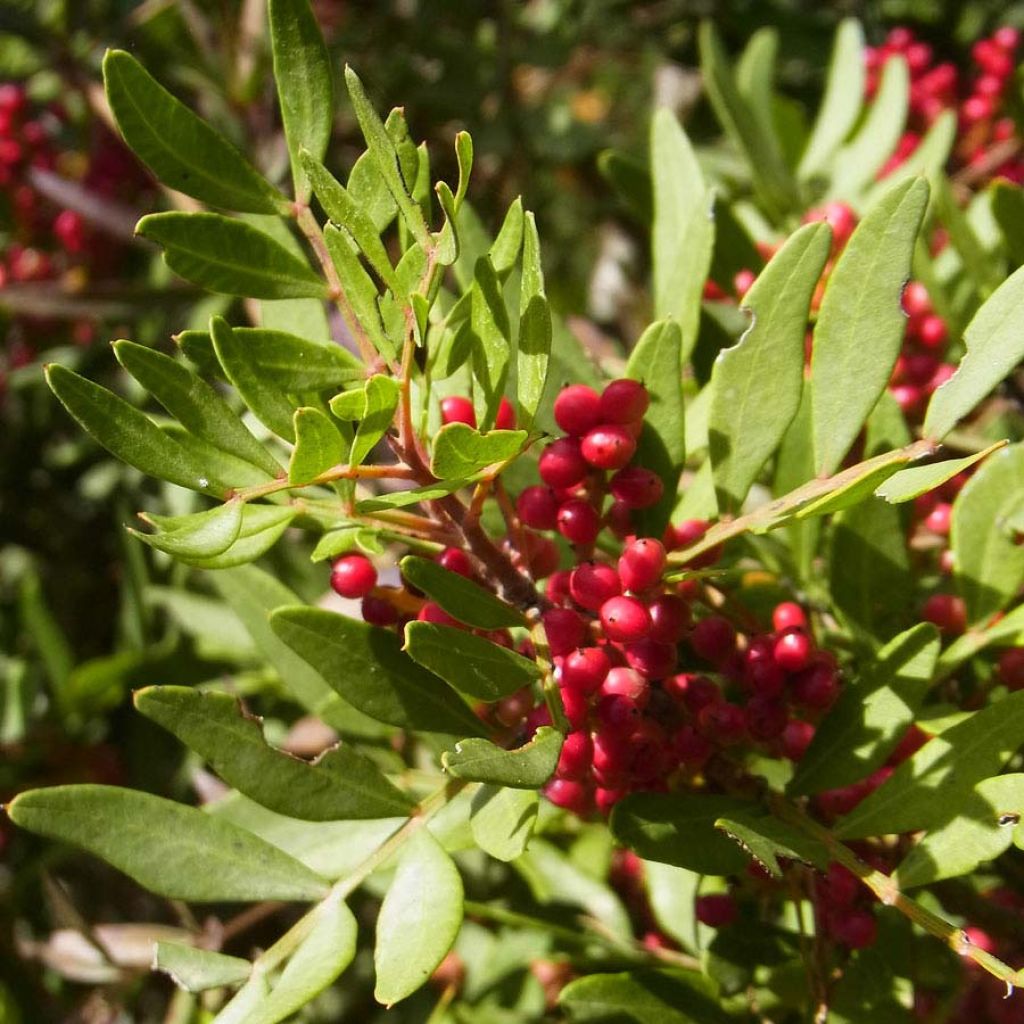

Pistacia lentiscus - Mastic Tree
Pistacia lentiscus - Mastic Tree
Pistacia lentiscus
Lentisk, Mastic Tree
I have a pistachio tree. It doesn't bear fruit. How can I tell if it's a male or female plant? I need to identify it so I can then choose a plant of the opposite sex. And where can I buy the complementary plant to get very decorative red fruits in my natural hedge? Thank you for your response.
Chantal, 08/02/2026
Special offer!
Receive a €20 voucher for any order over €90 (excluding delivery costs, credit notes, and plastic-free options)!
1- Add your favorite plants to your cart.
2- Once you have reached €90, confirm your order (you can even choose the delivery date!).
3- As soon as your order is shipped, you will receive an email containing your voucher code, valid for 3 months (90 days).
Your voucher is unique and can only be used once, for any order with a minimum value of €20, excluding delivery costs.
Can be combined with other current offers, non-divisible and non-refundable.
Home or relay delivery (depending on size and destination)
Schedule delivery date,
and select date in basket
This plant carries a 24 months recovery warranty
More information
We guarantee the quality of our plants for a full growing cycle, and will replace at our expense any plant that fails to recover under normal climatic and planting conditions.

Would this plant suit my garden?
Set up your Plantfit profile →
Description
The Pistacia lentiscus, also known as mastic tree, is a beautiful evergreen bush, somewhat dark and quite varied in form, punctuating the landscapes that border the Mediterranean with its dark and dense mass. It never really strays far from the sea, which provides its young plants with the winter warmth they need to become sturdy subjects. Once well-established, poor, arid, soils, wind, scorching sun or even the thick shade of green oaks or pines will not overcome its quiet strength. Its unique personality shines through in its dense habit, small foliage cut into tough dark green leaflets, and the powerful balsamic and herbaceous scent of the amber resin that its bark hides like a treasure. The mastic tree is a reliable bush, reaching a venerable age, essential for the composition of the permanent structure of the garden in mild climates.
The Pistacia lentiscus is a bush of the anacardiaceae family, native to the Mediterranean basin, from North Africa to the Mediterranean Europe, and to Israel. In France, it is found in Corsica, but also along a wide border along the Mediterranean, and up to Charente-Maritime. In the wild it grows on rocky slopes, deeply rooted in the poor soils of garrigues and scrub vegetation, also evergreen forests, in dry climates with mild winters. It reaches an average height of 2m (6.6ft) and a spread of 3m (9.8ft) and shows a dense, generally rounded, spreading, branched and sturdy construction. Depending whether it is exposed to the wind or sheltered, it will form large ground cover or a large bush over 3m (9.8ft) in height. Its foliage is divided into an even number of small oval and tough leaflets, not exceeding 3cm (1.2in) in length and 1.5cm (0.6in) in width. The young leaves are light green in spring, dark in summer. In winter, under the effect of cold, they take on pretty violet or bronze shades. The green flowers, from March to May, are quite insignificant and followed, on pollinated female subjects, by numerous small, edible, red fruits grouped in quite decorative clusters which turn black when ripe. Fresh seeds, harvested in winter, germinate quite easily in spring.
Relatively easy to grow, the Pistacia lentiscus dislikes cold winters, especially when young. A well-established subject, 4 or 5 years old, will be able to withstand brief frosts of around -12 to -15°C (10.4 to 5°F). As it tolerates sea spray, it can be planted by the seaside. Like the bay laurel, strawberry trees, myrtles, and Pittosporum truncatum, it is perfect for creating permanent structure in the garden. In a natural hedge, it can also be associated with cotinus or deciduous euonymus with superb autumn colours. Its dark foliage creates interesting contrasts with shrubs with grey foliage (Artemisia ludoviciana, Buddleia Silver Anniversary, Gomphostigma virgatum White Candy), bluish (Eucalyptus gunii), yellow (Phyllostachys aurea, Sambucus nigra Golden Tower), or the variegated pink foliage of the corkscrew willow (in cooler soil). Also cultivate this mastic tree in the understory, with Phlomis samia, acanthus, Bupleurum fruticosum, or Choisya ternata.
The mastic tree has been used since ancient times for the amber resin it exudes when the bark of its trunk is cut. This resin, when exposed to air, solidifies into a mastic used for its proven antiseptic properties, particularly in dental care. The most sought-after mastic comes from trees native to the Aegean Sea, especially from the island of Chios. The wood of this bush is pink or ochre, veined with yellow. It is used in cabinetmaking and carpentry. It is also a good firewood that produces excellent charcoal. The nut looks a lot like a pistachio and can be eaten raw. It is more often used in the production of a confectionery called masticha in Arab countries.
Report an error about the product description
Pistacia lentiscus - Mastic Tree in pictures
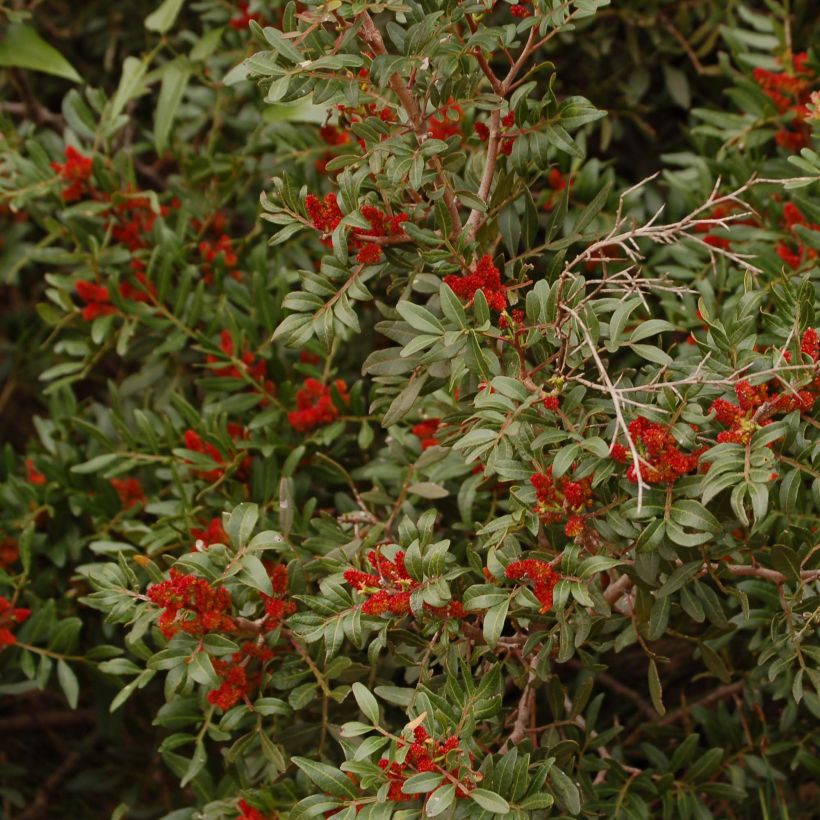

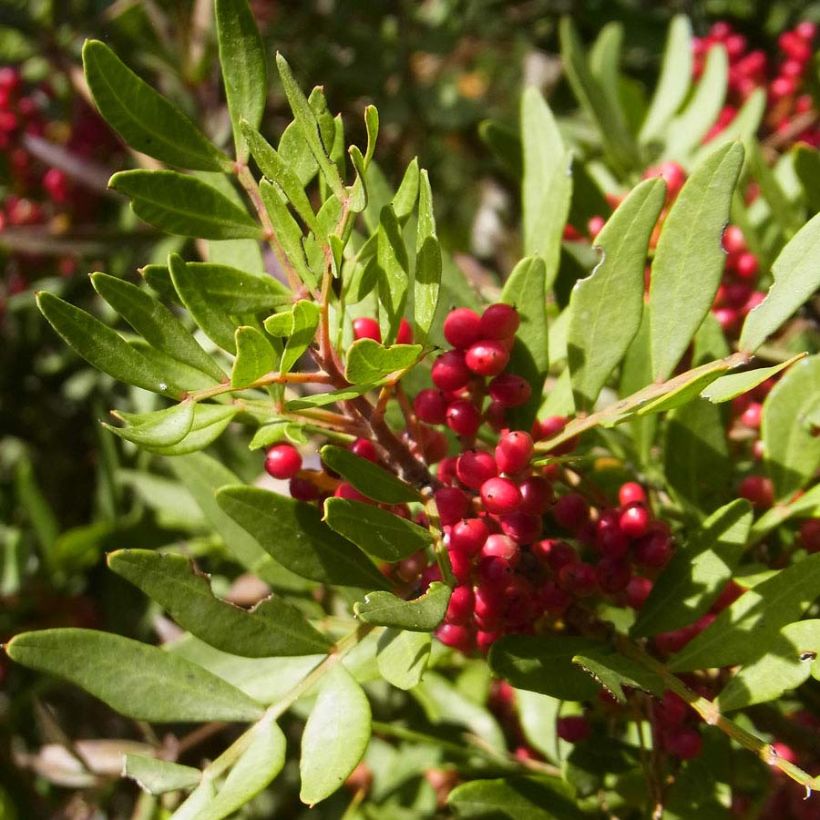

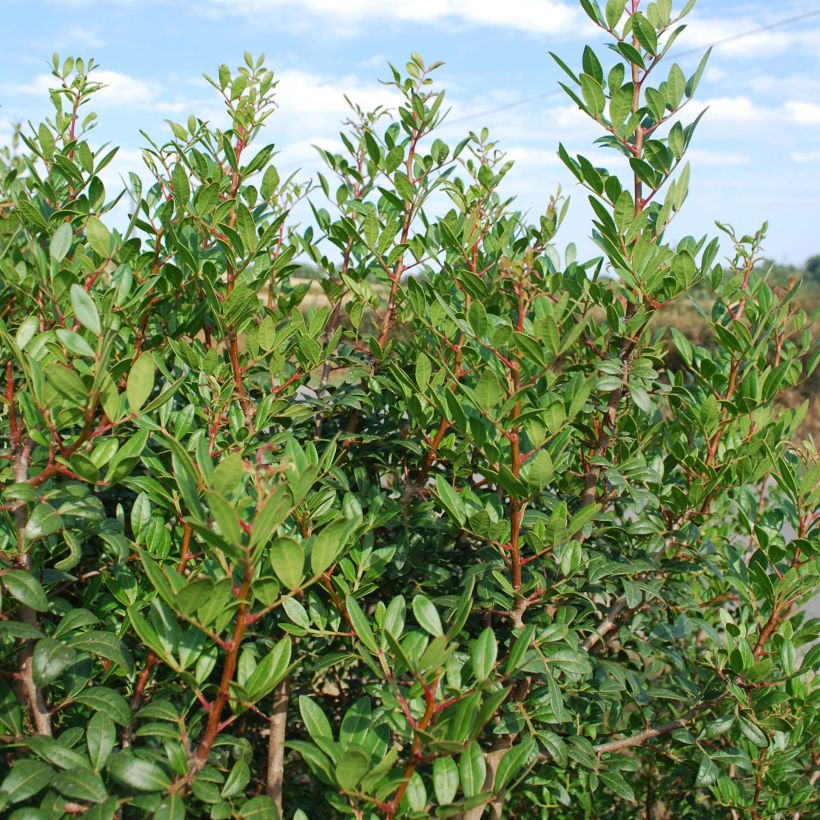

Plant habit
Flowering
Foliage
Botanical data
Pistacia
lentiscus
Anacardiaceae
Lentisk, Mastic Tree
Mediterranean
Other Shrubs A to Z
View all →Planting and care
The pistachio lentisk is a very tolerant bush in relation to soil and exposure. However, to ensure a good start, care should be taken to plant it in well-worked soil to allow its roots to descend more quickly. In mild climates, it is planted in early autumn, while in areas with borderline hardiness, spring planting is preferable. An adult bush will withstand short frosts around -12/-15°C (10.4/5°F), in dry soil and a sheltered location, regrowing from the stump if its vegetation has been damaged. It is advisable to protect young plants with fleece if significant frosts are forecast during its first winters. This pistacia tolerates chalk and clay soils very well in dry climates. It also tolerates slightly acidic soils, both compact and moist in winter, if there is no frost. This bush is very well adapted to drought and summer heat and tolerates pruning well, which allows it to be trained as a hedge or topiary.
Its foliage often bears coloured growths called galls; they are due to two parasites, the mite Eriophyes stefanii or the aphid Anopleura lentisci. These galls do not endanger the health of the plant.
Propagation: by sowing fresh seeds collected in winter from female plants. Sow without delay.
Planting period
Intended location
Care
-
, onOrder confirmed
Reply from on Promesse de fleurs
Similar products
Haven't found what you were looking for?
Hardiness is the lowest winter temperature a plant can endure without suffering serious damage or even dying. However, hardiness is affected by location (a sheltered area, such as a patio), protection (winter cover) and soil type (hardiness is improved by well-drained soil).

Photo Sharing Terms & Conditions
In order to encourage gardeners to interact and share their experiences, Promesse de fleurs offers various media enabling content to be uploaded onto its Site - in particular via the ‘Photo sharing’ module.
The User agrees to refrain from:
- Posting any content that is illegal, prejudicial, insulting, racist, inciteful to hatred, revisionist, contrary to public decency, that infringes on privacy or on the privacy rights of third parties, in particular the publicity rights of persons and goods, intellectual property rights, or the right to privacy.
- Submitting content on behalf of a third party;
- Impersonate the identity of a third party and/or publish any personal information about a third party;
In general, the User undertakes to refrain from any unethical behaviour.
All Content (in particular text, comments, files, images, photos, videos, creative works, etc.), which may be subject to property or intellectual property rights, image or other private rights, shall remain the property of the User, subject to the limited rights granted by the terms of the licence granted by Promesse de fleurs as stated below. Users are at liberty to publish or not to publish such Content on the Site, notably via the ‘Photo Sharing’ facility, and accept that this Content shall be made public and freely accessible, notably on the Internet.
Users further acknowledge, undertake to have ,and guarantee that they hold all necessary rights and permissions to publish such material on the Site, in particular with regard to the legislation in force pertaining to any privacy, property, intellectual property, image, or contractual rights, or rights of any other nature. By publishing such Content on the Site, Users acknowledge accepting full liability as publishers of the Content within the meaning of the law, and grant Promesse de fleurs, free of charge, an inclusive, worldwide licence for the said Content for the entire duration of its publication, including all reproduction, representation, up/downloading, displaying, performing, transmission, and storage rights.
Users also grant permission for their name to be linked to the Content and accept that this link may not always be made available.
By engaging in posting material, Users consent to their Content becoming automatically accessible on the Internet, in particular on other sites and/or blogs and/or web pages of the Promesse de fleurs site, including in particular social pages and the Promesse de fleurs catalogue.
Users may secure the removal of entrusted content free of charge by issuing a simple request via our contact form.
The flowering period indicated on our website applies to countries and regions located in USDA zone 8 (France, the United Kingdom, Ireland, the Netherlands, etc.)
It will vary according to where you live:
- In zones 9 to 10 (Italy, Spain, Greece, etc.), flowering will occur about 2 to 4 weeks earlier.
- In zones 6 to 7 (Germany, Poland, Slovenia, and lower mountainous regions), flowering will be delayed by 2 to 3 weeks.
- In zone 5 (Central Europe, Scandinavia), blooming will be delayed by 3 to 5 weeks.
In temperate climates, pruning of spring-flowering shrubs (forsythia, spireas, etc.) should be done just after flowering.
Pruning of summer-flowering shrubs (Indian Lilac, Perovskia, etc.) can be done in winter or spring.
In cold regions as well as with frost-sensitive plants, avoid pruning too early when severe frosts may still occur.
The planting period indicated on our website applies to countries and regions located in USDA zone 8 (France, United Kingdom, Ireland, Netherlands).
It will vary according to where you live:
- In Mediterranean zones (Marseille, Madrid, Milan, etc.), autumn and winter are the best planting periods.
- In continental zones (Strasbourg, Munich, Vienna, etc.), delay planting by 2 to 3 weeks in spring and bring it forward by 2 to 4 weeks in autumn.
- In mountainous regions (the Alps, Pyrenees, Carpathians, etc.), it is best to plant in late spring (May-June) or late summer (August-September).
The harvesting period indicated on our website applies to countries and regions in USDA zone 8 (France, England, Ireland, the Netherlands).
In colder areas (Scandinavia, Poland, Austria...) fruit and vegetable harvests are likely to be delayed by 3-4 weeks.
In warmer areas (Italy, Spain, Greece, etc.), harvesting will probably take place earlier, depending on weather conditions.
The sowing periods indicated on our website apply to countries and regions within USDA Zone 8 (France, UK, Ireland, Netherlands).
In colder areas (Scandinavia, Poland, Austria...), delay any outdoor sowing by 3-4 weeks, or sow under glass.
In warmer climes (Italy, Spain, Greece, etc.), bring outdoor sowing forward by a few weeks.






























